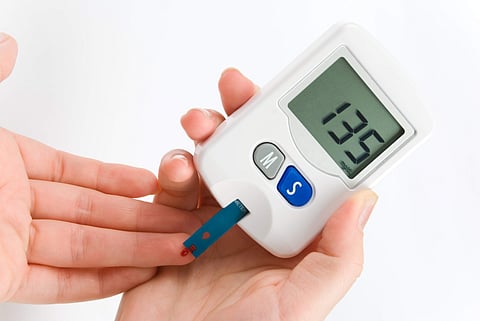

NEW DELHI: According to a report by Lancet, people with diabetes - both type 1 and type 2 - are two to three times more likely to develop depression and 20% more likely to develop anxiety than those without diabetes.
The report further highlights that disordered eating or abnormal eating patterns are twice as common in people with type 1 diabetes. Among women with type 1 diabetes, diabulimia (insulin omission to lose weight) is the most common eating disorder, while binge eating is more common in women with type 2 diabetes.
The report also points out that 36 percent of people living with diabetes report experiencing diabetes distress, which refers to negative emotional reactions like anger, denial, guilt, shame, fear, worry, sadness, and stress.
The report further added that 63% of people with diabetes report that their wellbeing is affected by the fear of developing diabetes-related complications and 28% find it hard to remain positive about their condition.
Moreover, people with diabetes (both type 1 and type 2) are more likely to experience emotional and mental health issues compared to those without the condition.
“These issues can range from diabetes distress to anxiety, depression, and disordered eating, all of which can be associated with suboptimal diabetes management, increased risk of diabetes-related complications, reduced quality of life, and increased healthcare costs,” the report said.
Diabetes distress affects around 36% of people with negative emotional reactions that can arise from living with diabetes— such as anger, denial, guilt, shame, fear, worry, sadness, and stress—and can manifest at any time throughout the condition and even before a formal diagnosis,” it added.
Factors like treatment regimens, food and eating, diabetes-related complications, fear of hypoglycaemia, relationships, and interactions with medical professionals, diabetes distress can be triggered by events, such as treatment targets not being met, serious episodes of diabetic ketoacidosis or severe hypoglycaemia, the onset of complications, life transitions, experiencing stigma, and many more.
Diabetes requires contonous monitoring of blood glucose
Diabetes (type 1 and type 2) is a self-managed condition, requiring contonous monitoring of blood glucose, injecting insulin and taking other medications, and ensuring regular physical activity and healthy eating practices.
However managing these complex demands can be particularly challenging for people with diabetes and poor mental health issues.
The ADA Position Statement on psychosocial care for people with diabetes recommends integrating psychosocial and diabetes care by screening for symptoms of diabetes distress, depression, anxiety, disordered eating, and cognitive capacities at the initial visit, periodic intervals, and when a change in disease, treatment, or life circumstance occurs, the article said.
However, due to a shortage of mental health professionals with diabetics care team, these recommendations are often unmet in clinical practice.
One proposed solution to aid the identification of mental health issues in people with diabetes is to move from routine screening to targeting those at the highest risk.
“Such an approach could be facilitated by greater understanding of the heterogeneity of diabetes, identifying those at the greatest risk of mental health issues and thus enabling precision-medicine-based treatment of mental health conditions in people with diabetes,” it said.
Diabetes is about more than just glycaemic control—it can affect every part of daily life and negatively impact wellbeing. If the psychological burden of diabetes is to be reduced and well-being to be improved, a holistic approach to diabetes care needs to be adopted.
“Only by treating the body and mind as inseparable entities will the wellbeing of people with diabetes get the priority it deserves,” the report said.
World Diabetes Day, observed on Nov 14 each year, seeks to raise global awareness and improve outcomes for the 537 million people estimated to be living with diabetes around the world and those with, as yet, undiagnosed diabetes.
Recognising that diabetes affects mental health as much as physical health, 2024 marks the start of a 3-year campaign focusing on diabetes and wellbeing, which aims to prioritise wellbeing support in diabetes care.
According to a report by the NCD Risk Factor Collaboration (NCD-RisC) and World Health Organisation (WHO), India recorded the highest number of diabetics globally in 2022, accounting for over a quarter of the world's 828 million cases.
Around 212 million people in India, about 23.7% of the population, were living with diabetes in 2022. It added that nearly 62% of diabetics in India were not receiving any treatment for their condition.